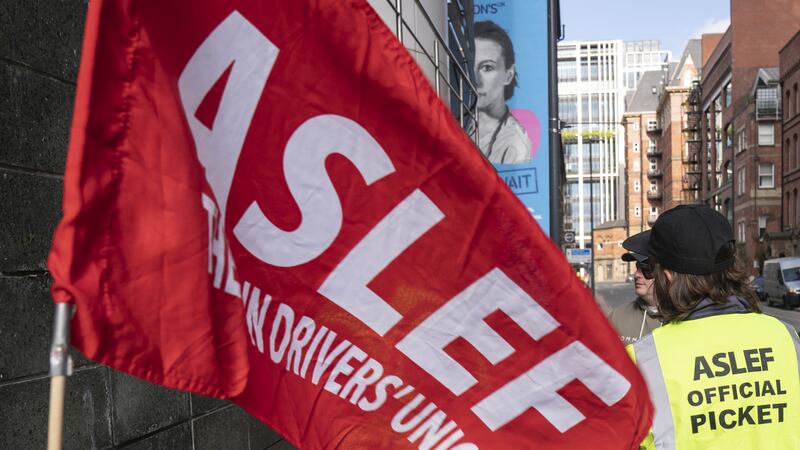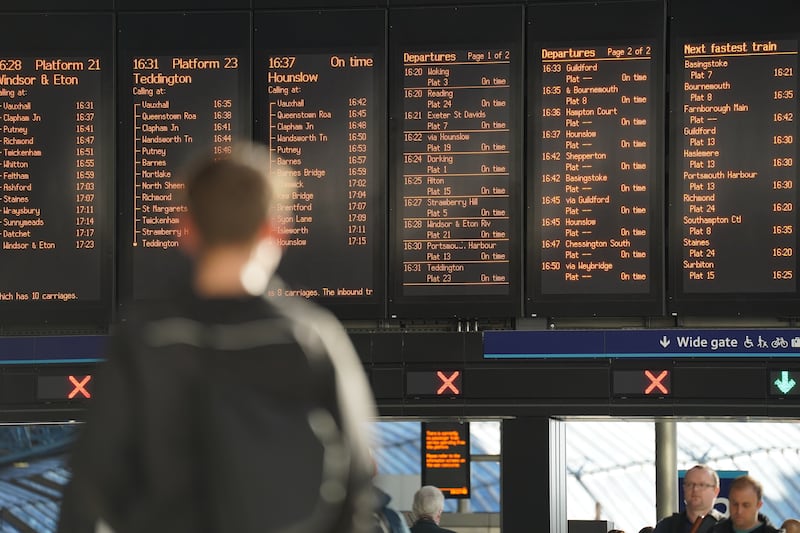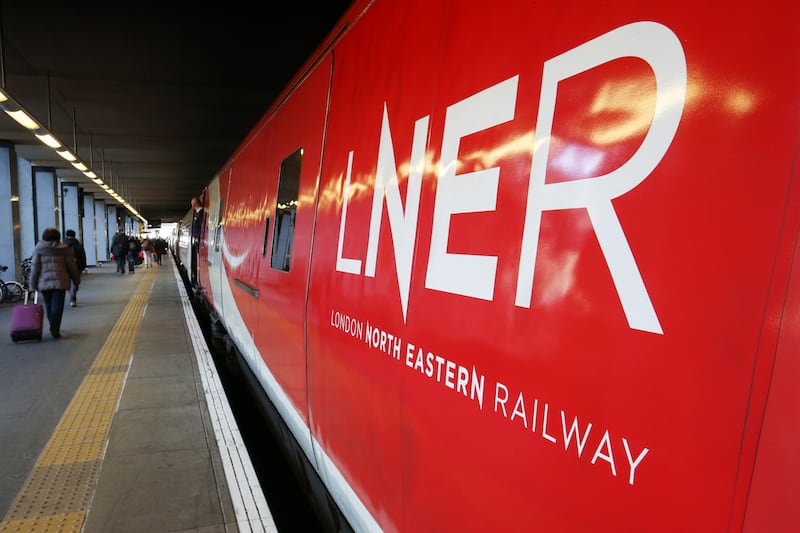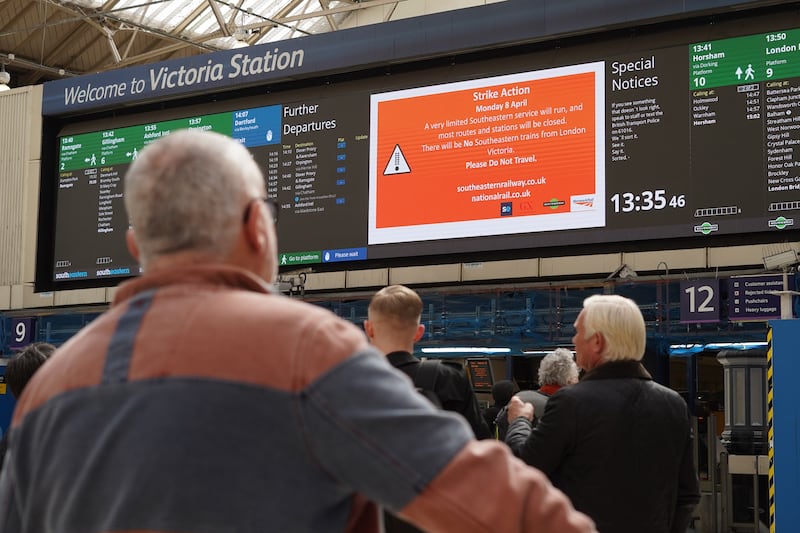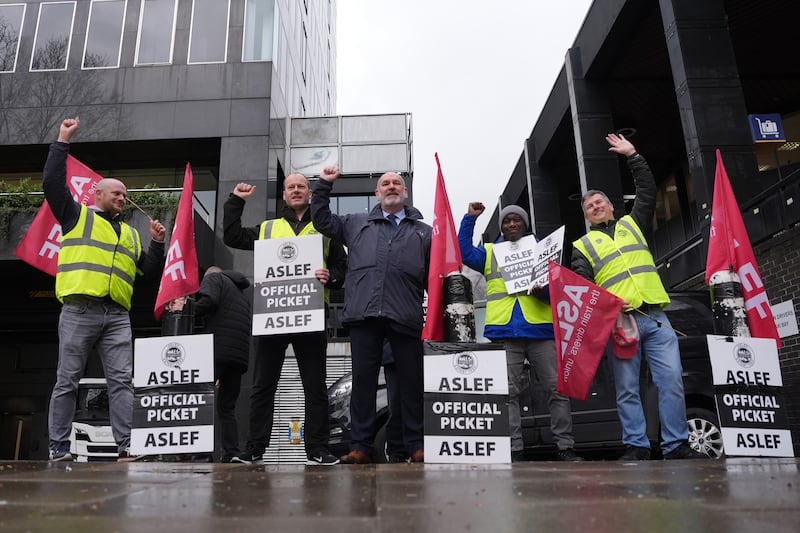Large parts of the country have no train services because of a fresh strike by drivers in a long-running pay dispute.
Members of Aslef at Avanti West Coast, CrossCountry, East Midlands Railway, West Midlands Railway and London Northwestern walked out on Friday, mounting picket lines outside stations.
All five train operators said they are not running any services, with passengers urged not to attempt to travel.
Speaking at the Aslef picket line outside Euston station, the union’s general secretary Mick Whelan said strike action was necessary because “we haven’t had a pay rise for half a decade”.
Meanwhile, a freight train derailment in West Ealing, west London has blocked some lines between Reading and Paddington, causing delays and cancellations.
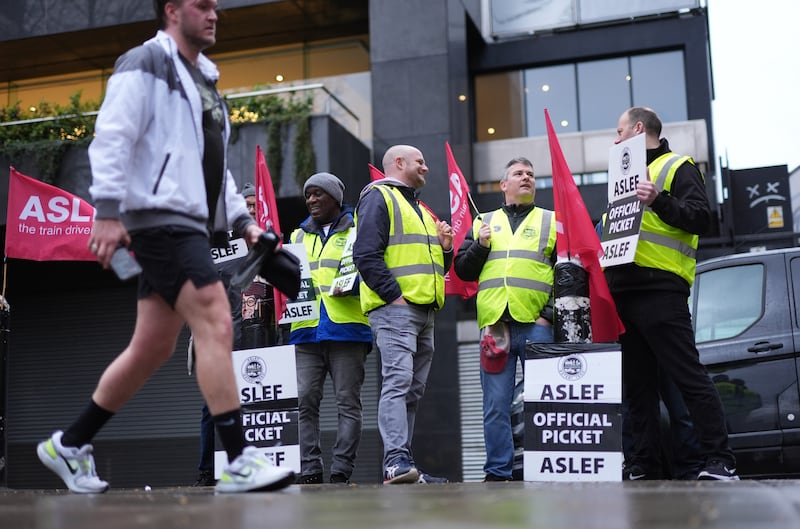
The operators affected are Great Western Railway, Elizabeth line and Heathrow Express.
An Aslef ban on overtime at 16 companies is also continuing until Saturday, causing more disruption to services.
On Saturday train drivers will walk out on Chiltern Railways, Great Western Railway, LNER, Heathrow Express, Northern and TransPennine Express.
A strike on Monday will affect c2c, Gatwick Express, Greater Anglia (including Stansted Express), Great Northern, Southeastern, Southern, South Western Railway (including the Island Line) and Thameslink.
A law is now in place aimed at ensuring a minimum level of service during rail strikes but none of the operators involved in the Aslef dispute have applied to use it.
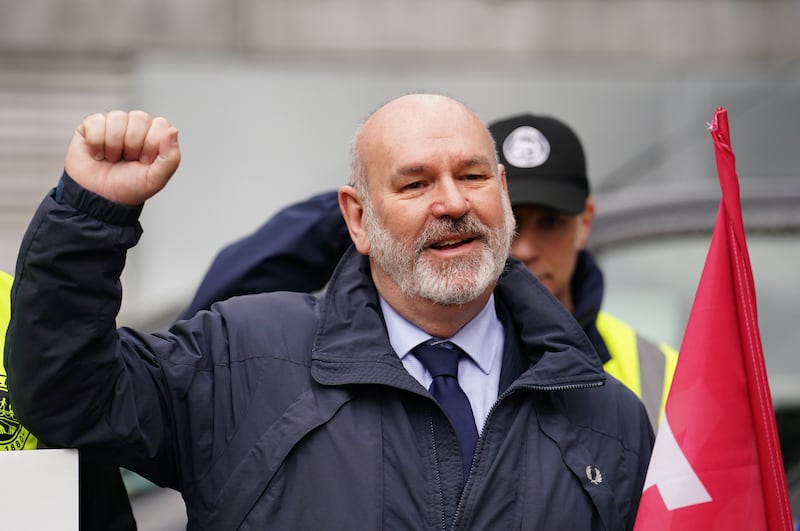
Mr Whelan said: “We’ve done 17 pay deals in the last 12 months across all sectors, nations and regions – freight, open-access, Elizabeth line, and Tube.
“And yet we only have a problem with one place and the place we have a problem with is the Westminster Government, who are interfering with our pay deals with the private companies we work for.”
He said the union’s primary issues were with the “bad faith” train operators who refuse to negotiate because of “political dogma” and the Government who “don’t care”.
Mr Whelan added: “What they want to do is rip up every term and condition we’ve got.”
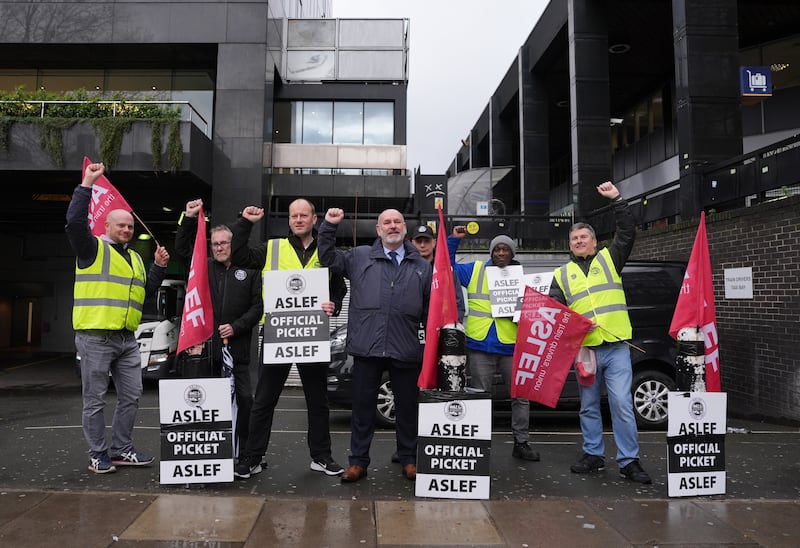
A Department for Transport spokesperson said: “Aslef is the only rail union continuing to strike, targeting passengers and preventing their own members from voting on the pay offer that remains on the table.
“Having resolved disputes with all other rail unions, the Transport Secretary and rail minister have ensured that a pay offer is on the table – taking train drivers’ average salaries from £60,000 up to £65,000.”
A spokesperson for the RDG said: “Minimum Service Level legislation is one of many useful tools for managing strike disruption, but it is not a silver bullet.
“Operators’ guiding principle is always to make sure they can offer the best, most reliable services possible for their passengers on and around industrial action days, and to do that they need to make careful assessments of their own particular operational circumstances before deciding the best way forward.”
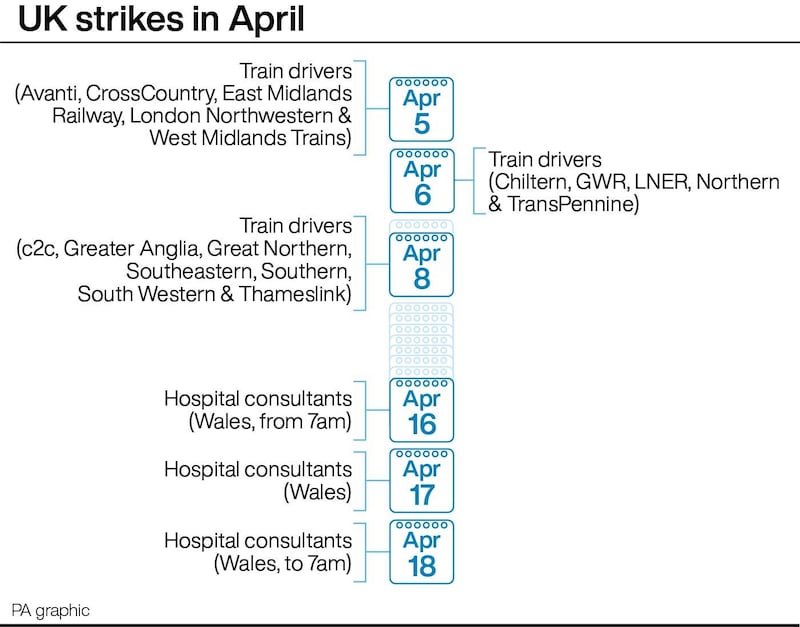
In relation to the disruption in west London, a Network Rail spokesperson said: “At around 6.10am this morning, a freight train derailed while travelling into the sidings at West Ealing.
“There were no injuries and we closed the adjacent lines to assess that it was safe for trains to pass.
“One of the lines has now reopened to passenger trains and a team is on site to assess the situation with the freight train and whether the second adjacent line can be safely reopened.
“Trains between London Paddington and Reading may be cancelled, delayed or revised while we deal with the incident.
“Passengers are advised to check their journey with National Rail Enquiries before travelling.”
